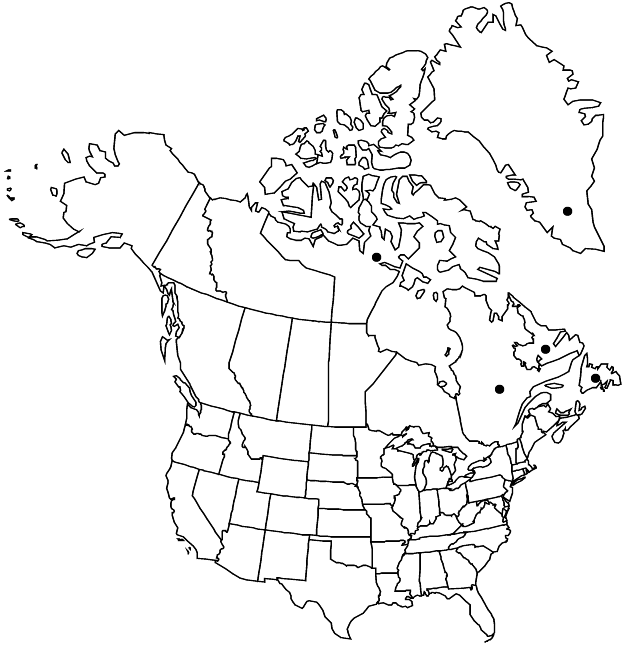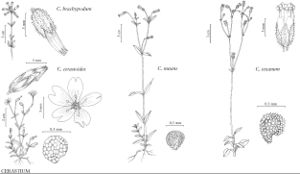Difference between revisions of "Cerastium cerastoides"
Mem. Torrey Bot. Club 5: 150. 1894.
FNA>Volume Importer |
imported>Volume Importer |
||
| (2 intermediate revisions by 2 users not shown) | |||
| Line 8: | Line 8: | ||
}} | }} | ||
|common_names=Starwort mouse-ear chickweed;céraiste à trois styles | |common_names=Starwort mouse-ear chickweed;céraiste à trois styles | ||
| + | |special_status={{Treatment/ID/Special_status | ||
| + | |code=F | ||
| + | |label=Illustrated | ||
| + | }} | ||
|basionyms={{Treatment/ID/Basionym | |basionyms={{Treatment/ID/Basionym | ||
|name=Stellaria cerastoides | |name=Stellaria cerastoides | ||
| Line 72: | Line 76: | ||
|publication title=Mem. Torrey Bot. Club | |publication title=Mem. Torrey Bot. Club | ||
|publication year=1894 | |publication year=1894 | ||
| − | |special status= | + | |special status=Illustrated |
| − | |source xml=https:// | + | |source xml=https://bitbucket.org/aafc-mbb/fna-data-curation/src/2e0870ddd59836b60bcf96646a41e87ea5a5943a/coarse_grained_fna_xml/V5/V5_170.xml |
|subfamily=Caryophyllaceae subfam. Alsinoideae | |subfamily=Caryophyllaceae subfam. Alsinoideae | ||
|genus=Cerastium | |genus=Cerastium | ||
Latest revision as of 22:09, 5 November 2020
Plants perennial, mat-forming, rhizomatous. Stems creeping, much-branched, rooting, glabrous except for line of small hairs down each internode; flowering shoots decumbent or ascending, 5–10 cm; nonflowering shoots prostrate, 5–15 cm; small axillary tufts of leaves usually absent. Leaves sessile, tending to be marcescent, somewhat succulent; blade elliptic-oblong or linear-lanceolate, 2–12 × 1–3 mm, apex obtuse, rarely acute, glabrous, sometimes ciliate at base. Inflorescences lax, 1–3-flowered terminal cymes; bracts lanceolate, 2–5 mm, glabrous or ciliate. Pedicels becoming curved, slender, 5–35 mm, equaling or exceeding sepals, glandular-puberulent. Flowers: sepals narrowly lanceolate, 4–5 mm, margins narrow, midrib present, apex obtuse, glandular-pubescent towards base; petals 5–8 mm, 1–1.5 times as long as sepals, apex deeply 2-fid; stamens 10; styles 3(–6). Capsules ovoid-conic, oblong after dehiscence, straight, 7–10 mm, 1.5–2 times as long as sepals; teeth 6(–12), erect to spreading, margins convolute. Seeds brown, 0.5 mm diam., shallowly rugose; testa not inflated. 2n = 38.
Phenology: Flowering summer.
Habitat: Wet, arctic areas, alpine rills, alpine and arctic snowbeds
Elevation: 0-800 m
Distribution

Greenland, Nfld. and Labr., Nunavut, Que., Europe, amphi-Atlantic.
Discussion
Cerastium cerastoides is an unusual member of the genus because it normally has only three styles and a straight, six-toothed capsule, rather than a curved capsule as in most of the other species. The blunt sepals help to distinguish this species from C. arvense subsp. strictum, with which it is most likely to be confused. The epithet of this species is often misspelled “cerastioides.”
Selected References
None.
